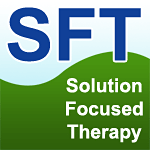|
|
|
|
|
Holistic Therapy & Personal Development Services Adhering
to National
Occupational Standards & |
|
LOCATIONS |
ISSUES |
THERAPY |
ABOUT US |
||
  Fellows of the Society of Holistic Therapists & Coaches www.societytherapistscoaches.co.uk  About Us: Insured Professionally Registered Qualified to real standards Adhering to NOS Dedicated to Ongoing development Adhering to codes of ethics Involved in training provision Therapists with Supervision access First established 1993 |
Welcome to Scotland's Premier Therapy and Holistic Personal Development SiteCoaching & Psychological therapy Support for people with autism and carers of suffers.Autism is largely misunderstood in society today, despite being first identified in 1943. According to National Autistic Society estimated figures, over 500,000 families are effected in some way by autistic spectrum disorders. Because there is no physical handicap or visual method of easily identifying a sufferer, people often fail to realise that the person suffers from such a disorder. This leads to problems with caring for younger sufferers in particular, since the behaviour of a child with autism may seem "naughty" to a lay person. Indeed normally accepted methods of parenting and discipline are often found to be ineffective and a degree of behaviour has to be accepted. This is often misunderstood by observers as a parental failure. This leads to additional stress for the carers of a child who is suffering. ADULT SERVICE ONLY What is autism?Autism is a condition which effectively does act as a disability. It is a lifelong condition and focuses on communication and perception. Because perception and communication are effectively on a different "wavelength", this severely effects the suffers ability to build and maintain relationships. This is compounded by the inability to understand or fully related to the feelings experienced by other people. Frequently sufferers also experience other conditions such as learning disabilities and these can complicate or delay initial identification of the condition. In all cases people with autism have a different image of the world we live in. Reality to an autistic person can be a confusing, interacting mass of events, people, places, sounds and sights. There can seem to be no clear boundaries, order or meaning to anything. A large part of life can be spent just trying to work out the pattern behind everything. The Condition known as asperger syndrome is a form of autism at the "higher functioning" or less incapacitated end of the "autistic spectrum".
What are the characteristics of autism?People with autism have problems interacting, communicating and visualising concepts and ideas This is known as the triad of impairments.
In addition, repetitive behaviour patterns are a notable feature and a resistance to change in routine. In some cases sufferers nay exhibit touch sensitivity, angry or violent reactions and other negative behaviours, either as resistance to change or as a part of the overall condition for them. Depression, anxiety, phobias and obsessive compulsions may also develop, especially with age. What causes autism?The cause or causes of autism are still not known. Research indicates genetic factors are important. Research also shows links with a variety of conditions affecting brain development which occur before, during, or very soon after birth. There is continued controversy relating to the MMR vaccination programme in the USA and UK and efforts continue to identify whether there is a link between vaccination and the development of autistic spectrum disorders. What sorts of therapies are effective then?There are a range of different therapies that are used to assist persons suffering from Autism. For a list of therapies other than those used in practice here, refer to the list at the National Autistic Society website HERE (Offsite). In practice here in Scotland we offer support to both sufferers and the families / carers of people with autistic spectrum disorders. We draw on our experience working with sufferers (Stuart as a former Intensive Support Service trained support worker in the field of learning disabilities, Denise working with children in an care setting) together with experience in psychotherapy to provide a holistic approach. As with any condition, whether physical, mental or learning disability orientated, there is a strong emphasis on still "living". It is easy to become an "autistic" or some other label, rather than being a person who may suffer from the condition, but who has equal right to everyone else to enjoy life. Psychotherapy techniques can work to enable sufferers and families to live around the condition to be best ability possible, rather than putting life on "pause". this is essential since the condition is life long. Families frequently need support with the stress of caring, and of fighting for resources and support from statutory agencies. Therefore strong elements of advocacy, networking and counselling often are needed. For both sufferers and carers, depression, anxiety, low confidence, and a range of other issues are commonplace. Professional therapy can be very useful in coping with these and overcoming them. We strongly urge anyone who suspects that they or someone close to them suffers from an autistic spectrum disorder to contact the National Autistic Society. Do not allow yourselves to feel isolated and alone. Reach out and seek support, it will help. Copyright is acknowledged in respect to the above material in that the description is loosely based on the information provided at the NAS website. From 2010 psychological therapy will also contain elements of mindfulness and CBT in order to increase client development between sessions.To Contact Therapy Services EASY METHOD: We adhere to appropriate National Occupational Standards, carry professional insurance and support statutory regulation of therapists. We support the coming voluntary regulation of psychotherapy and counselling. Stuart is a CNHC registered hypnotherapist (voluntary regulation of hypnotherapy).

Practitioners
have different exact affiliations and registrations. Exact details on
request. |
|
||||||||||||||||||||||||||||||||||||||||||||||||||||
|
To Contact Therapy Services EASY METHOD:
use
Email us
Email: enquiry@scotlandtherapy.co.uk Listed with GoToSee – The Health & Therapy Directory www.scotlandtherapy.co.uk http://www.therapistregister.co.uk/ |
||||||||||||||||||||||||||||||||||||||||||||||||||||||
| Key
Words for Search Engines: Edinburgh, Glasgow, Scotland. Autism, Aspergers, Autistic, learning difficulty, autistic spectrum, CBT, Cognitive Behavioural Therapy and training. Counselling and psychotherapy. Counsellor and Psychotherapist. Hypnotherapy, Hypnotherapist. Life Coach, Life Coaching. NLP Neuro Linguistic Programming. Accredited Therapists. Registered Therapists. Therapy and holistic healing. Anger management. Stress Management. Diet and nutrition. Weight loss and exercise programmes. Crystal healing and gemstones. Pastoral and spiritual healing. Multi faith and Wiccan healing. Reiki and energy healing. Relaxation therapy. Confidence, nerves, depressed feelings, anxiety, depression, self help, self hypnosis, hypnotist, hypnosis, trance. Phobias, fears, panic, frustration, aggression, violence, abuse. Drugs and alcohol. Eating disorders. Addictions, smoking, drugs, gambling. Personal Development. Sports Hypnosis, performance hypnosis, NLP for sales and performance. |